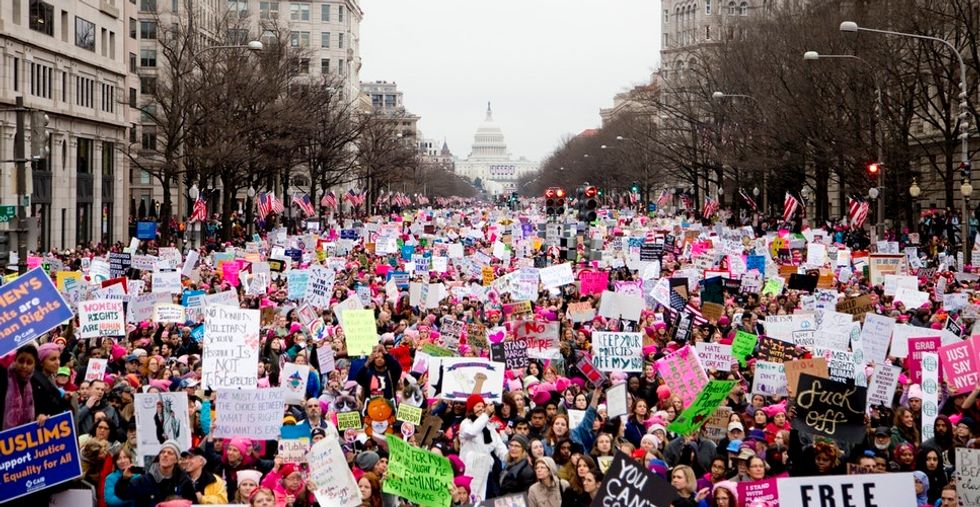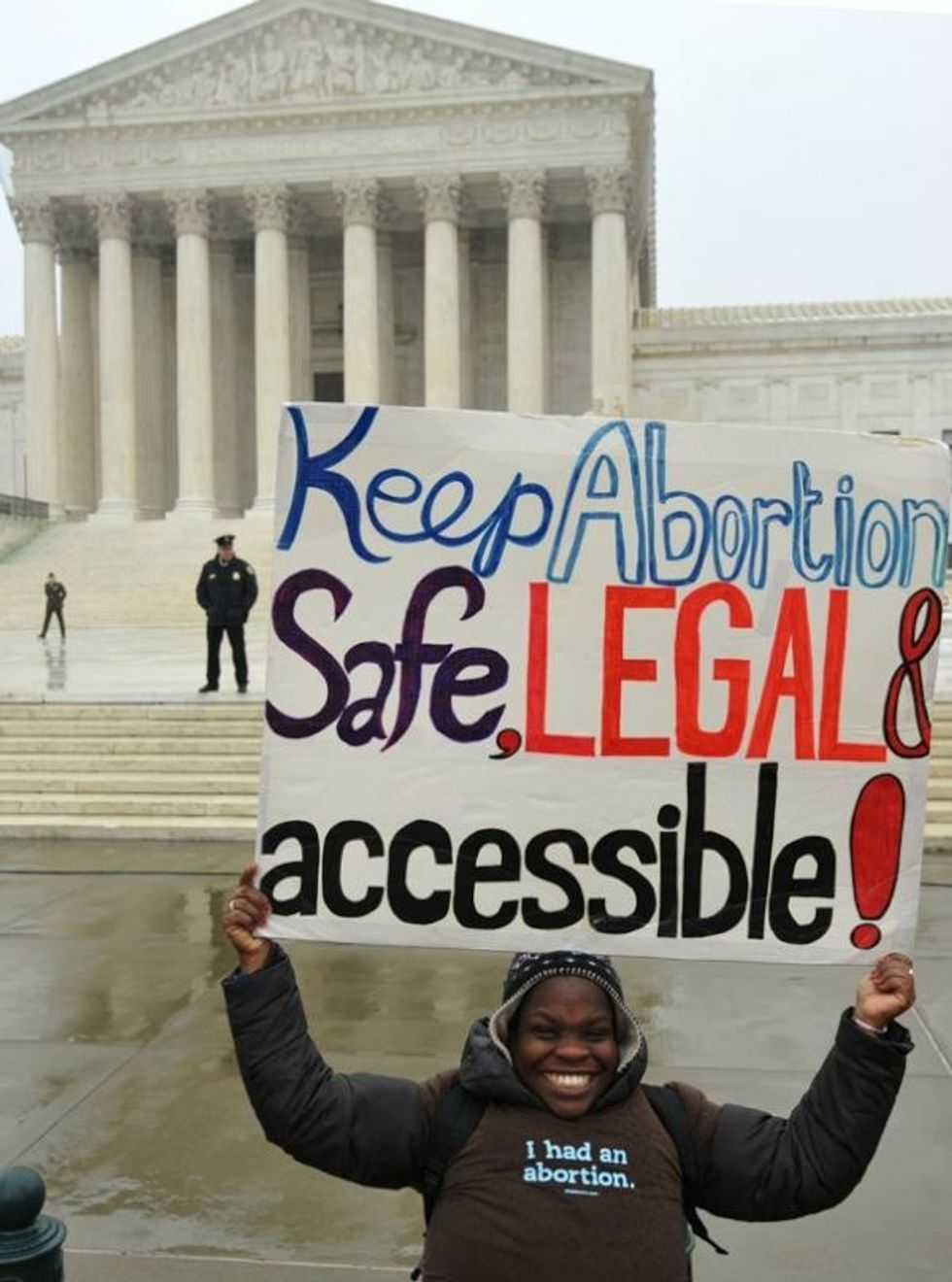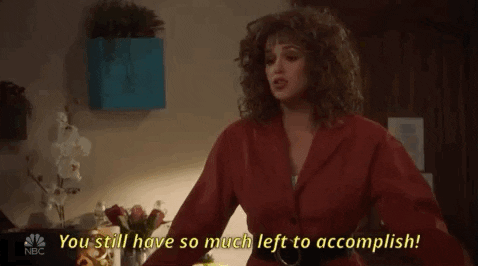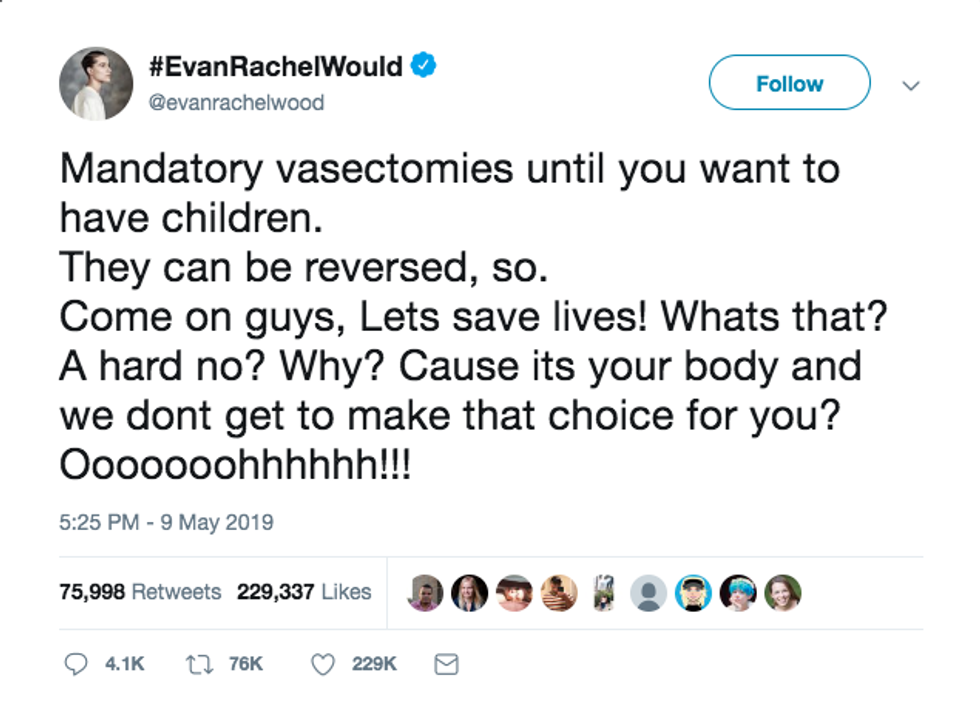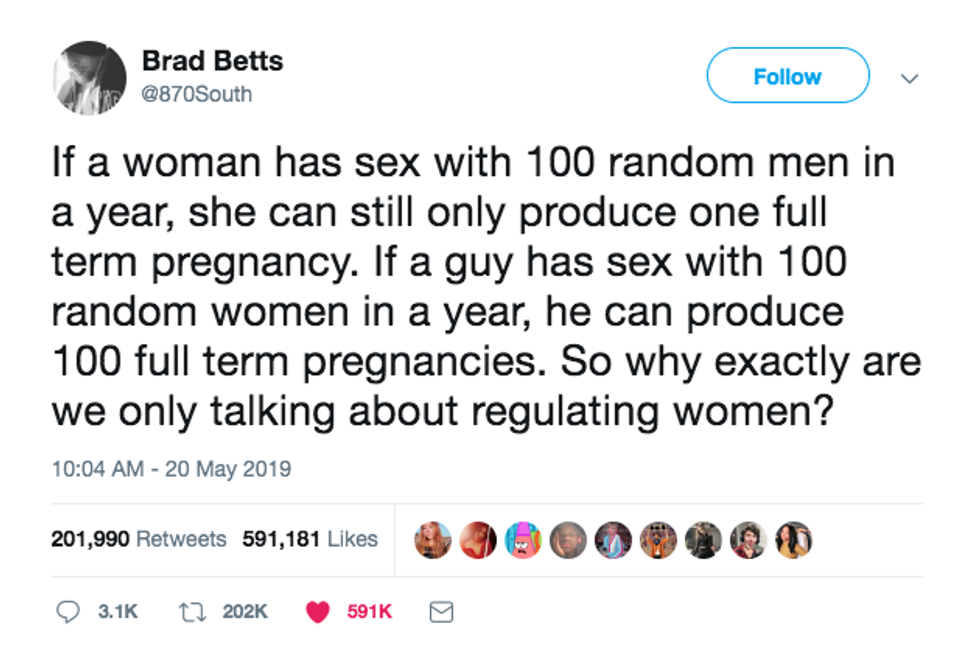Here Is What The Abortion Ban Does For The Women Of The United States
This is not a win for life.
In a nation so focused on the heartbeats of innocents, millions of them stopped cold and dead when the outcome of the Alabama legislation was revealed to the public last week. Signed into law by Alabama's governor, Kay Ivey, the new policy is an outward attack on the privacy and sovereignty of women and their bodies. The fact of the matter is that banning abortions will not stop them, but rather, make them immensely more difficult and therefore dangerous to obtain.
The world has already erupted into an outcry at the legislation as other states begin to follow in Alabama's footsteps. From civilians to celebrities to humble workers to world leaders, people all around the globe are beginning to protest this violation of self, body, and choice. Because this ban, drafted under the impression that "every life is a sacred gift", is a hypocritical one at its very root.
The only exception within this law is if carrying the baby poses a threat to the mother's health.
While this is a common reason for abortion, it eliminates exceptions of rape, incest, and other factors as to why a woman may choose to receive an abortion. The ban is a calculated attack on the reproductive and personal freedoms of women. A common argument within this debate is that if men were able to bear children, the legislation would not pass. Contraception would be regarded as a much less taboo subject, proper sex education in schools would become normalized, and the stigma associated with premarital sexual activity would become a thing of the past. "Close your legs," they say to those in favor of a women's right to choose. "Use protection."
And what if protection doesn't work? According to the Center for Disease Control, reported by Medical News Today, the contraceptive pill is 99.7% effective but may fluctuate to 91% with typical use. The use of condoms in sexual activity is approximately 98% effective against unwanted pregnancy, according to Planned Parenthood. In other words, contraception proves to be effective, but just because something has a high probability of not occurring does not mean that the unwanted outcome can never occur.
What people are failing to understand amidst the tumult of the political scene is that you cannot put every instance of abortion, every woman's story, every woman's reason into a box. The stories of women are filling the world with voices that cannot be quelled by the power of one single law. Stories of women who have endured sexual assault, who have been attacked by family members, whose sexual partners have poked holes in contraception, who have never protected themselves. This ban favors those attackers, those despicable individuals who subject a woman to one of the most difficult decisions of the human experience.
But above all, the overarching message is this: a woman has every right to her own body, and hers is the only reason that matters. Her right to an abortion does not mean someone else who is against abortion needs to have one. Her right is her right, and it is the right for all women who choose to do so.
This is not a win for life. This is not a win for families, for women, or for children. If those in power cared about the lives of children, assault rifles would be banned from the United States after the Columbine tragedy, if not before. Vaccines for preventable and life-threatening illnesses would be made mandatory. Children of migrants would not be put in cages at the border or torn away from their loved ones. Innocent children of color would not be the subject of poverty and violence as they are today.
This is not a win for life. It is a condemnation of those who are attempting to live it, freely.

